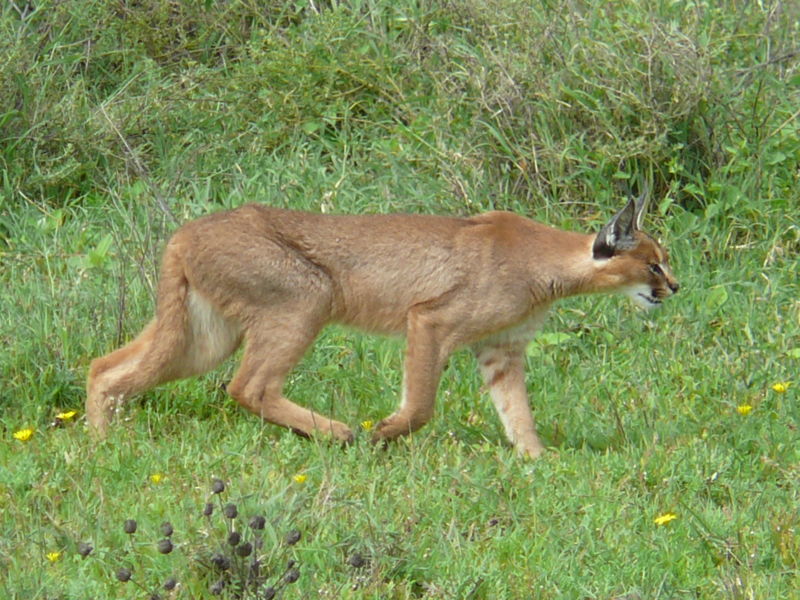
Emma Smith, a Rhodes master’s student in the Department of Zoology and Entomology, recently received a major financial boost for her caracal MSC project, when the Research and Development Committee of Cape Wools SA pledged R50 000 towards the research.
With applied human-wildlife conflict in mind, Smith set about designing a study to quantify the effectiveness of lethal and non-lethal methods of caracal control in the Winterberg region of the Eastern Cape (a prime sheep farming area).
For over a century, the caracal (Caracal caracal) has been considered as vermin in South Africa due to their depredation of livestock. The reduction in farmers’ profit margins due to these predators has threatened livelihoods and severely impacted the small stock industry, sheep farming in particular. However, despite the implementation of various methods of control (both lethal and non-lethal) by farmers, caracals still pose a major threat to livestock production.
Smith’s study involves capturing two male caracals and fitting them with GPS collars on three separate farms – one that uses lethal control, one that uses alpacas to protect stock and a farm where no control occurs.
This approach will allow Smith to ascertain which habitats the caracals prefer/don’t prefer and how a particular control method affects the way the caracals use space.
By setting the collars to take six GPS fixes per day Smith will also be in a position to locate any substantial kills, which would include sheep, and thereby measure which control method is more appropriate.
The funds provided by Cape Wools SA will be used to purchase some GPS collars required for her project. “We are thrilled with this development,” said Dr Dan Parker, Smith’s supervisor. “The allocation of these funds by Cape Wools SA is testament to the fantastic commitment of the wool industry to applied research in the Eastern Cape,” he said.
